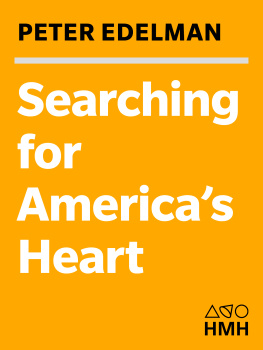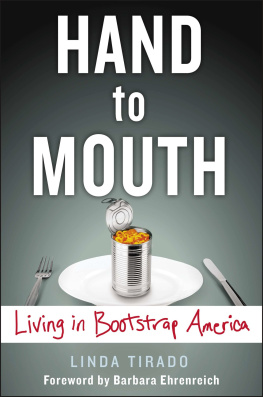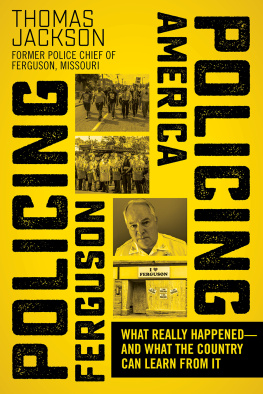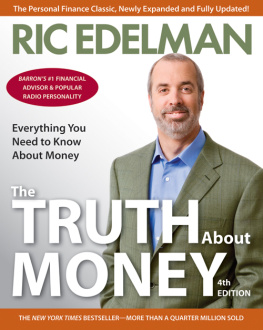Table of Contents
Guide
This book would not exist without Diane Wachtell and all of the great people at The New Press.
That one was easy. After that it gets complicated because so many helped in so many ways. There are the friends who read the draft at various stages, the people who have been treated unfairly and the people who have been helped, the lawyers, judges, public officials, journalists, organizers, and others who are fighting back, the many who help families and build stronger communities, the students at various law schools who took notes as I visited around the country, and the wonderful research assistants at Georgetown Law Center. Thank you to all. And a special thank-you to Dean Bill Treanor for the sabbatical year that made an enormous difference.
The readers: David Birenbaum, Jeff Shesol, Allegra McLeod, Mark Angney, Mark Greenberg, David Super, Jonah Edelman, and Betsy Kuhn.
The lawyers and other advocates, the public officials and judges, the journalists, and the resistance: Sharon Dietrich, Danny Engelberg, Adrienne Watt, Alec Karakatsanis, Thomas Harvey, Jonathan Smith, Sarah Geraghty, Sam Brooke, Jack Muse, Rebecca Vallas, Luke Shaefer, Kate Walz, Annie Lee, Ji Seon Song, Jon Wool, Judge Steven Teske, Jill Webb, Mike Herald, Senator Robert Hertzberg, Los Angeles Supervisor Mark Ridley-Thomas, Sandra Park, Nusrat Choudhury, Myron Orfield Jr., Lauren-Brooke Eisen, Marc Schindler, Tim Murray, Deborah Fowler, Elisa Della-Piana, Susannah Karlsson, Steve Gray, Nina Revoyr, Rosa Bay, Vicki Turetsky, Chris Albin-Lackey, Rachel Cicurel, Teresa Nelson, Maria Foscarinis, Hallie Ryan, Vanessa Hernandez, Mike Brickner, Joe Shapiro, Kate Rabb, Hannah Benton, Kate Weisburd, Carrie Graf, Maren Hulden, Miriam Aukerman, Rick McHugh, John Philo, David Socolow, Andrea Marsh, Jenny Egan, and Mary Bauer.
The community and family builders: Steven Dow, Rosanne Haggerty, Sondra Samuels, Dixon Slingerland, Megan Smith, Nancy Aardema, Ralph Silber, and all of their colleagues.
My terrific research assistants: Ben Shaw, Joshua Gillerman, Olivia Jerjian, Lauren Kelleher, Austin Davidson, Madeline Meth, Naomi Iser, Greg Carter, Julianne Cozzetto, Rebecca Williams, and Rachel Smith.
The great law school students who took superb notes at my field visits (with profuse thanks to Caroline Fredrickson and her colleagues at the American Constitution Society): Emily Lekahal, Matthew Roloff, Priscilla Ankrah, Ranit Patel, Anne Easton, Kate Azevedo, Julia Waterhous, Misha Guttenberg, Olevia Boykin, Lindsey Croasdale, Tony Wadas, Sonia Housany, Mark Hartman, and Cybil Rajan.
Special thanks to David Udell and Melissa Ludtke for keeping an eye out for new material, and to Ellika and especially Zoe Edelman, who never failed to ask how the book was coming along.
And most of all, thank you to the people who told me how they had been victimized by high fines and fees and bail they could not afford, the lawyers who helped, and the organizations I describe in the last part of the book.
ALSO BY PETER EDELMAN
Searching for Americas Heart: RFK and the Renewal of Hope
So Rich, So Poor: Why Its So Hard to End Poverty in America
About the Author
Peter Edelman is the Carmack Waterhouse Professor of Law and Public Policy and the faculty director of the Center on Poverty and Inequality at Georgetown University Law Center. He is the author of So Rich, So Poor: Why Its So Hard to End Poverty in America (The New Press). A top advisor to Senator Robert F. Kennedy from 1964 to 1968, he went on to fill various roles in President Bill Clintons administration, from which he famously resigned in protest after Clinton signed the 1996 welfare reform legislation. He lives in Washington, D.C.
Celebrating 25 Years of Independent Publishing
Thank you for reading this book published by The New Press. The New Press is a nonprofit, public interest publisher celebrating its twenty-fifth anniversary in 2017. New Press books and authors play a crucial role in sparking conversations about the key political and social issues of our day.
We hope you enjoyed this book and that you will stay in touch with The New Press. Here are a few ways to stay up to date with our books, events, and the issues we cover:
Sign up at www.thenewpress.com/subscribe to receive updates on New Press authors and issues and to be notified about local events
Like us on Facebook: www.facebook.com/newpressbooks
Follow us on Twitter: www.twitter.com/thenewpress
Please consider buying New Press books for yourself; for friends and family; and to donate to schools, libraries, community centers, prison libraries, and other organizations involved with the issues our authors write about.
The New Press is a 501(c)(3) nonprofit organization. You can also support our work with a tax-deductible gift by visiting www.thenewpress.com/donate.
In New Orleanss Municipal Court, Section A, even when the judge was presiding, not a word was audible to anyone in the audience, and, with multiple negotiations happening simultaneously around the room, no one in the gallery could understand anything that was going on. In the center of the grim circus were the shackled men wearing orange jumpsuitsalmost all African Americanbeing held for arraignment, awaiting trial because they could not make bail, or doing time for criminal contempt because they had not appeared in response to a judicial attachment or bench warrant for nonpayment of debt owed to the court.
Most of the shackled men, many quite young, were embarking on (or well along in) a long or even endless voyage of debt and incarceration. Unlike other jurisdictions, New Orleans does not jail people at the time they are sentenced and unable to pay a fine. But this is a distinction without a difference: many of the accused are held for days before being arraigned, and more are in for longer times while awaiting trial because they cant afford to post bail. More yet will serve multiple stints in jail for nonpayment of debts to the court, ad infinitum.
In too many cities and small towns across the country, scenes like the one in New Orleans occur every day. The details differ, but high fines and fees are the order of the day in juvenile as well as adult courts. Even in jurisdictions and individual courtrooms where low-income arrestees are not jailed when initially sentenced, the dearth of public defenders, the almost ubiquitous use of money bail (in adult courts), and the ever-mounting payments owed mean repeated time in jail along with unmanageable debt. Ferguson is almost everywhere.
Constitutional violations on the part of the courts are rife, and they go uncorrected largely because of the shortage of public defenders. Police often violate the Fourth Amendment, making stops without reasonable suspicion, making arrests without probable cause, and using excessive force. First Amendment rights are violated when free expression is suppressed, including prohibition of the use of cellphone cameras to film police activity in a public setting. Fourteenth Amendment rights are curtailed when there is racial, economic, and other discrimination by police, judges, and other officials who disregard equal protection and due process.
The very act of jailing an indigent person for a fine-only, low-level offense is unconstitutional, and many of these jailings occur in states that actually have laws explicitly banning debtors prisons. In 1983 the Supreme Court heard the case of Danny Bearden, an illiterate ninth-grade dropout who was convicted of receiving stolen goods and placed on probation with a fine of $500 and a $250 order of restitution. His parents put up the first $200. Danny Bearden was going to pay the rest himself but was laid off from his factory job. He tried very hard to find work, but finally had to tell the probation people he had lost his job and could not make the payment then due. His probation was revoked and he was sent to jail. The Supreme Court decided in
Next page




